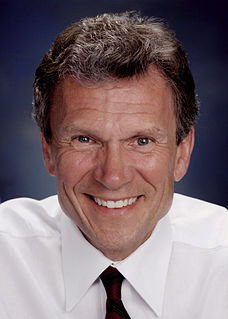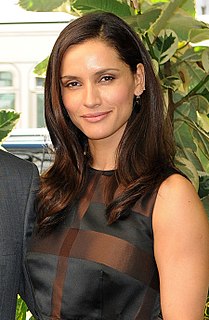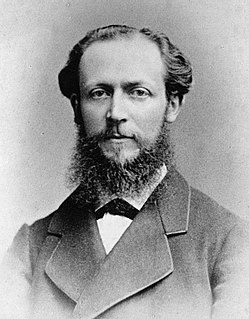A Quote by E. O. Wilson
If religion and science could be united on the common ground of biological conservation, the problem would be soon solved. If there is any moral precept shared by people of all beliefs, it is that we owe ourselves and future generations a beautiful, rich, and healthful environment.
Related Quotes
If I could leave this body with one wish, it would be that we never give up that search for common ground, .. The politics of common ground will not be found on the far right, or on the far left. That is not where most Americans live. We will only find it on the firm middle ground, based on common sense and shared values.
My view is there will be problems and bad people as long as the earth exists, and since we're moving into a completely interdependent global environment, we're better off building a world we'd like to live in when the United States are not the only military superpower. That is, we need to build a world of shared responsibility, shared benefits, and shared commitment to our common humanity.
Acoustic ecology is the study of information systems: the shared acoustic environment and how species send and receive messages in this shared acoustic environment. What these messages mean - meaning, what are the consequences and the changes of behavior in any species. And it has as much to do with us individually and biologically as it does with the shaping of cultures and beliefs.
It yet remains a problem to be solved in human affairs, whether any free government can be permanent, where the public worship of God, and the support of religion, constitute no part of the policy or duty of the state in any assignable shape. The future experience of Christendom, and chiefly of the American states, must settle this problem, as yet new in the history of the world, abundant, as it has been, in experiments in the theory of government.
When you start a company, it's more an art than a science because it's totally unknown. Instead of solving high-profile problems, try to solve something that's deeply personal to you. Ideally, if you're an ordinary person and you've just solved your problem, you might have solved the problem for millions of people.
Do you know what religion is, Martin, my friend? -I can barely remember Lord's Prayer. -A beautiful and well-crafted prayer. Poetry aside, a religion is really a moral code that is expressed through legends,myths, or any type of literary device in order to establish a system of beliefs, values , and rules with which to regulate a culture or a society.
It's a common perception that science and religion are mutually exclusive. But there are many scientists who would consider themselves to be spiritual people. Not only that, but in the case of climate change - a scientific issue with strong moral implications and difficult decisions to be made - it's essential to connect the science to our values. And for many of us, our values come from our faith.
The enclosure of the biological and intellectual commons in this way is a real threat to the future of people everywhere because it creates a situation where common practices that have been part of people's lives for generations become monopolies of a handful of pharmaceutical, agribusiness and agrichemical corporations. People then become incapable of looking after their own needs.





































